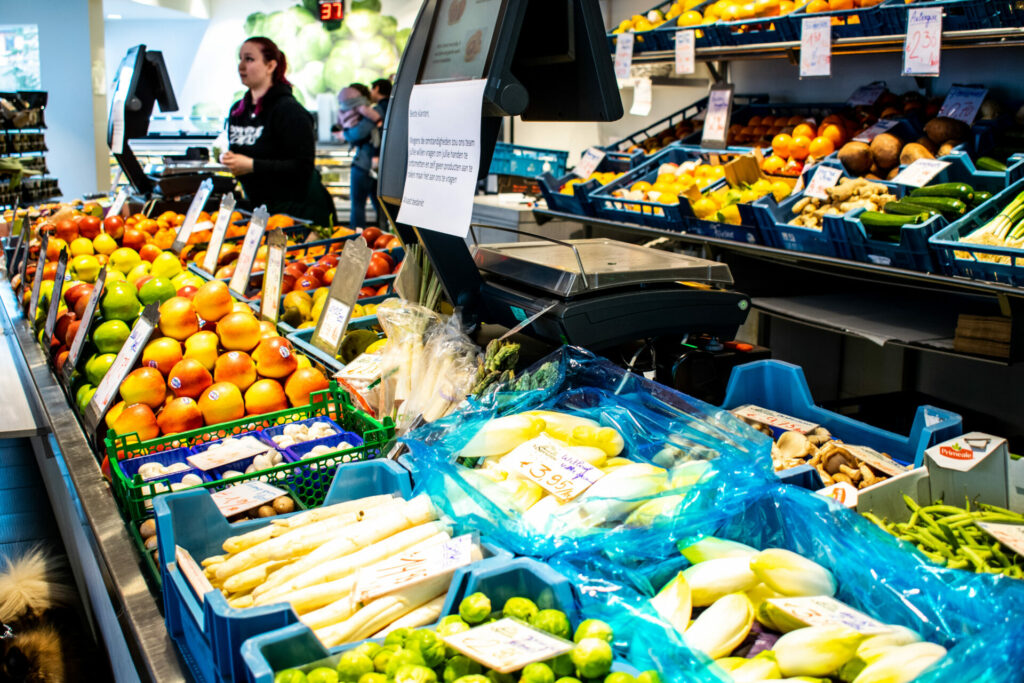The Russian invasion of Ukraine dealt a hammer blow to supply chains, dramatically pushing up the cost of commodities. But global food prices have since fallen 20%. Yet the relief from more stable and sustainable prices is not yet being felt by Belgian consumers.
Food prices on average decreased 20.5% in March compared to a year ago, according to figures from the United Nations Food and Agriculture Organisation (FAO). This was the twelfth consecutive month that the benchmark for world food commodity prices fell.
The drop in prices is the result of ample supplies, less import demand and the extension of the Black Sea Grain Initiative – the agreement between Ukraine and Russia which secures grain exports from Ukraine. Price reductions in March were especially marked for cereals, vegetable oils and dairy products.
However, at the consumer level the pressure remains high: “While prices fell at the global level, they are still very high and continue to increase in domestic markets, posing additional challenges to food security," stressed Máximo Torero, FAO Chief Economist. This is especially true for poorer countries that depend largely on food imports.
Not felt by consumers
As elsewhere around the world, shoppers in Belgium have yet to see their groceries become cheaper. On the contrary: a full shopping trolley gets more expensive month after month.
Supermarket inflation in Belgium last month peaked with an average household now paying on average one-fifth more for groceries than a year ago.
The drop in food prices is slow in trickling down to the consumer, largely because the cost of consumer products is not directly corollated to the cost of raw ingredients – various phases of transformation and distribution take place before products arrive on shelves. Other costs that determine consumer prices include energy, transport, wages and processing – all of which have gone significantly in the past year.
Related News
Meanwhile, sugar prices have risen to the highest level since October 2016. As this is incorporated in many products, this is also having a major impact on supermarket prices.
Fevia, the country's food industry federation, warned that Belgium is heading towards a price stabilisation rather than a decline, meaning households will likely continue to spend more on groceries than in the past.

